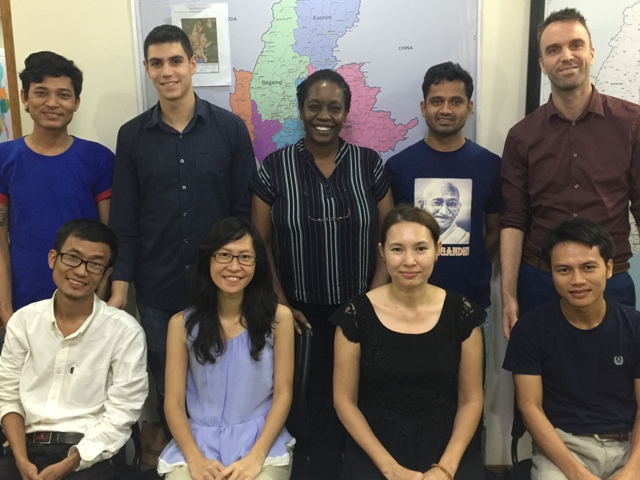Peacekeeper's Book Review

Peacekeeper's Book Review
By Rosemary Kabaki, Program Manager for NP in Myanmar
(Published May 9, 2017) In our series, "Peacekeepers Book Review" we have asked NP staff to share with our audience their favorite book on peace and nonviolence. Rosemary has had an extensive career working for Nonviolent Peaceforce in the Philippines, the South Caucasus and currently works in Myanmar as the program manager. For our first review, we asked Rosemary to share her thoughts on a book that has inspired her work.
My book choice is The Dictators Learning Curve: Inside the Global Battle for Democracy by William J. Dobson. Even before I started the book I was attracted by the initial look of it. Judging this book by its cover, the author has written the title 'The DICTATORS' in a way that reminded me of the child's game tic tac toe. I hence expected to find in the book a variety of strategies about real people and real players and I did.
I recommend this book, as it helped to reflect and learn about the nonviolent strategies utilized, most successfully, by human rights defenders. Through these strategies the HRDs in various parts around the world were able to combat tyranny and protect civilians from abuse of their human rights. The HRDs he picks to discuss are students, housewives and non-governmental organization representatives. What strikes me most, is how these civilians commit to combating violence with nonviolent strategies, the relatively modest profile of these civilians and the diverse reasons why they 'step up.' This book reminded me of how I am rejuvenated in my work with NP Myanmar through the transfer of skills to grassroots village civilians.
In NPs work in Myanmar, we incorporate in our training the giants of nonviolent movements, Mahatma Gandhi, Martin Luther King and Aung San Suu Gyi. As I read the book, I reflected on how NPs programs utilize unarmed civilian protection methods in response to the changing global context and build on activities that enhance civilian roles in protecting civilians. This book explores the impact made by the 'giants' of nonviolent movements but also highlights the ongoing work of relatively obscure civilians in applying innovative nonviolent strategies, as well as their successes and challenges. I would like for you to read it (if you haven't already) and discuss it with somebody the information it shares and the thoughts the book may provoke.
